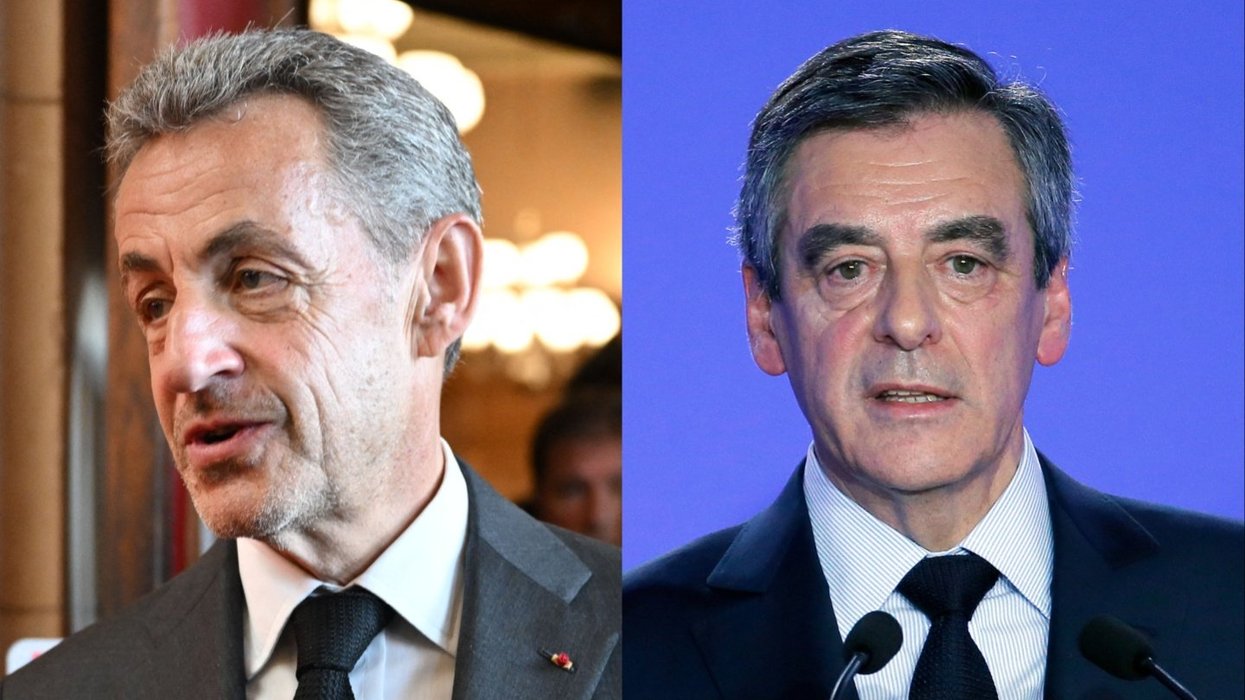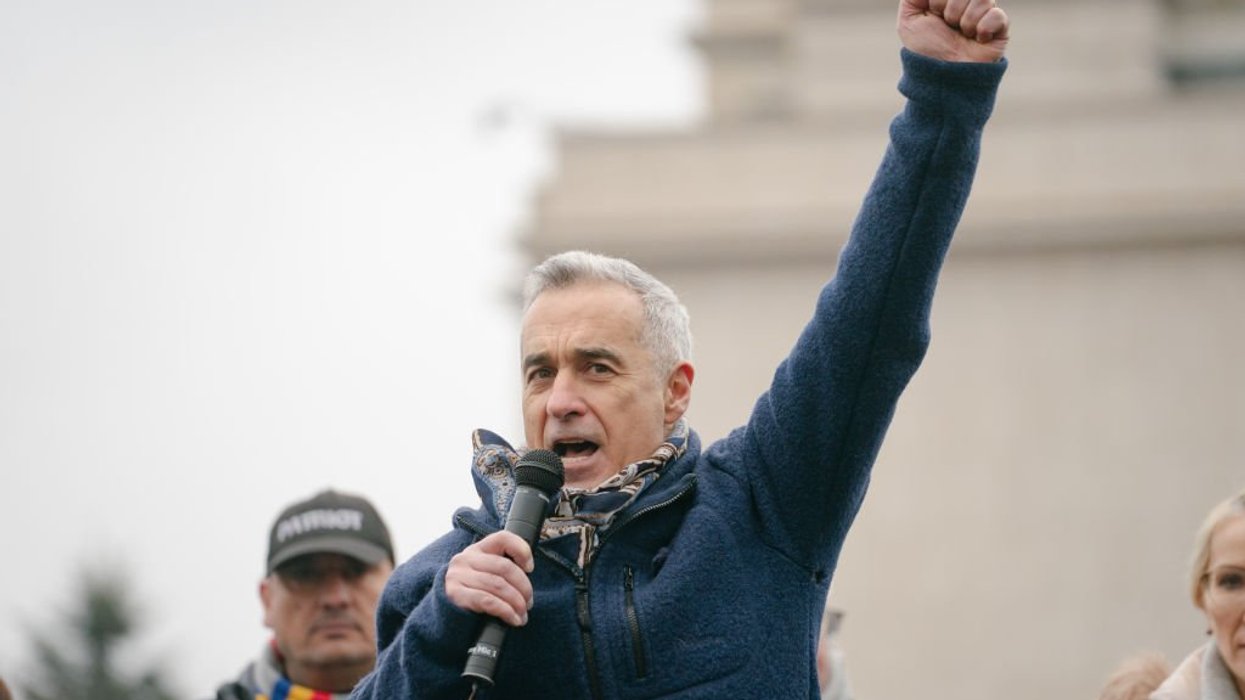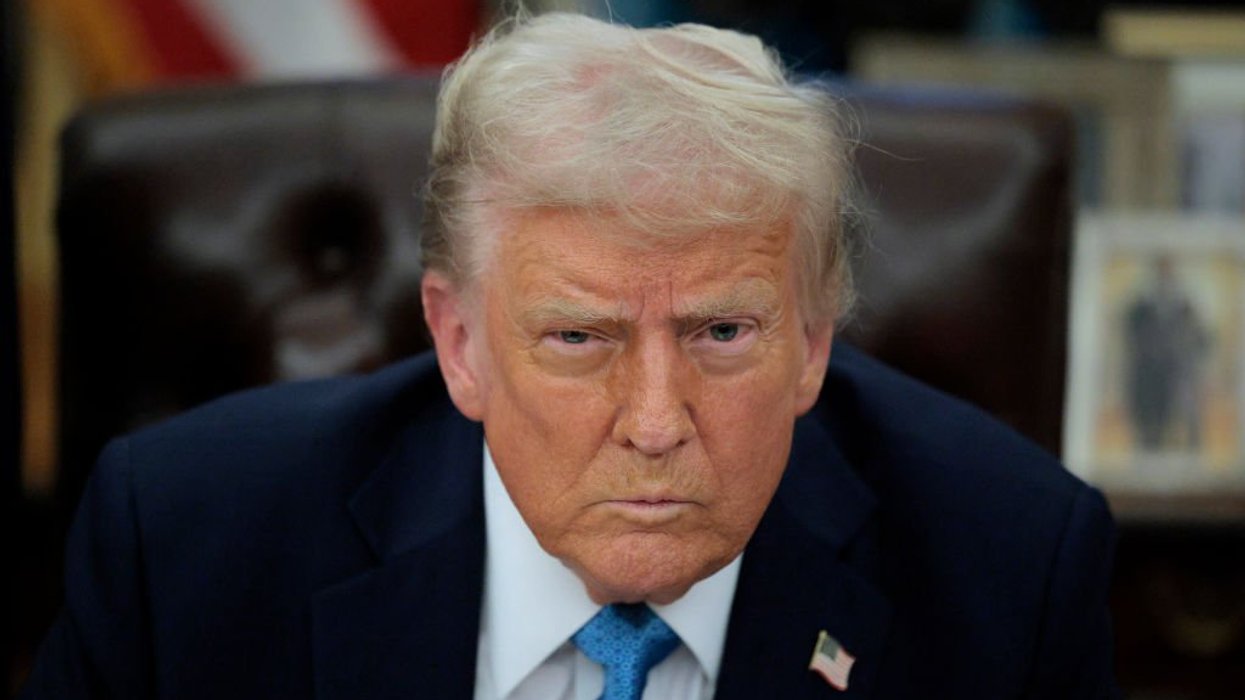Today, author Richard Paul Evans released the latest installment of the "Michael Vey" series: Michael Vey 2: Rise of the Elgen. Published by Glenn Beck’s Mercury Ink imprint, Michael Vey 2: Rise of the Elgen is the sequel to the instant #1 New York Times bestselling thriller Michael Vey: The Prisoner of Cell 25. Evans joined Glenn on radio this morning to discuss the new Young Adult novel.
“Rise of the Elgen, of course, takes off where the first book ended,” Evans told Glenn.
“Michael's mother was kidnapped and in Rise of the Elgen Michael is going down to save his mother. And it takes them to South America and into the jungles of the Amazon. I've actually spent a lot of time in the jungles. I've done a lot of humanitarian work down there. So it's a ride. That's all I can say. It's fun. It's a little scarier than the first book but I think that's good for especially the young male readers.”
Many fans of the series may not know that the book didn’t have a lot of supporters until Glenn decided to publish it as the first book from Mercury Ink.
“No one believed in the book,” Evans explained.
“The book debuts at number one of the New York Times,” he said, “ By the second day it was in its second printing.”
Back in June, Glenn encouraged viewers to create and interact with art that reflected positive values and lessons. The ‘Michael Vey’ series is just one example of this call being put into action. A story about hope and the power of goodness in an increasingly dark world, Michael Vey is a vehicle to teach kids important lessons and values.It teaches children that if they persist, and do what they know to be right, no matter how much pressure they face to do otherwise, then anything is possible.
You can get your copy of Michael Vey 2: Rise of the Elgin for 50% off TODAY ONLY by clicking HERE.
Read the full interview transcript below:
GLENN: During Restoring Love, we had book signings. David Barton was one of them. Michele Bachmann was one of them. We had ‑‑
PAT: Pat and Stu was one of them.
GLENN: Whatever.
PAT: Hello. It's huge.
STU: Huge.
GLENN: Brad Thor.
PAT: 730,000 people lined up.
GLENN: Brad Thor was there. I mean, we had some really big authors. And then there was Richard Paul Evans. Richard Paul Evans ‑‑
STU: Was that an insult?
GLENN: No.
PAT: Then this guy.
GLENN: Richard Paul Evans ‑‑ let me explain. Richard Paul Evans is one of the reasons why the Department of Homeland Security came to us and said they were worried about crowd control. His line for his book signing for Michael Vey: The Rise of the Elgin which is the Michael Vey, the second in the series, the reason why they said that they were concerned about crowds, his line was a quarter of a mile long. And you just told me, I didn't know this story. You stood in your own line.
EVANS: Yeah, I thought that was the line to get in to the event. I was there two hours early. I waited in line and thought, this line's not going anywhere.
PAT: What a buffoon!
EVANS: Thank you.
GLENN: Brad Thor wouldn't have done that.
PAT: Nope. Nope.
GLENN: (Laughing.)
EVANS: I'm a humble guy, okay? So I walked around.
GLENN: You stood in your own line.
EVANS: Yes. And so then I walked around and went to the front like I'm going to ‑‑ I have to get in there. And when I got to the front, people were wearing these T‑shirts they had made that said Vayniacs, and they started pointing at me and this guy said, this is your line for your book signing. I said, no, no, no.
GLENN: What's so funny is you were standing in your own line. Nobody knew. They're all waiting to meet you, they're all waiting to get your autograph and the people around you had no idea who you were.
EVANS: Well, it's all context.
GLENN: So amazing. The Michael Vey series, I'm just ‑‑ my kids were a little too young to read it last year. Raphe's just about 8 now and I'm reading it to my son and my daughter who is 7, and we love it. Just love it. I've been waiting to be able to share the books with them and I told Raphe last night ‑‑ we're just about finished with the first one and I told Raphe last night, we have to finish this because with new one comes out tomorrow. I told this story earlier. He looked at me like, he is not buying into me. And he was like, what are you selling? And I looked at him and I said, what's the problem? He said, Dad, it comes out tomorrow? And I said, yeah and he said, then how come we've had a copy for about a month?
EVANS: (Laughing.)
GLENN: He discovered Dad's a liar. But so we started. I haven't read it yet because I want to read it with the kids. Tell me about Rise of the Elgin.
EVANS: Rise of the Elgin, of course, takes off where the first book ended. Michael's mother was kidnapped and in Rise of the Elgin Michael is going down to save his mother. And it takes them to South America and into the jungles of the Amazon which I've actually spent a lot of time in the jungles. I've done a lot of humanitarian work down there. So it's a ride. That's all I can say. It's fun. It's a little scarier than the first book but I think that's good for especially the young male readers.
GLENN: You are ‑‑ you and I have one thing in common on when it comes to books, and it sets us apart, I think, from the rest of the publishing world. When you first had this book, you went to publishers and they said ‑‑
EVANS: They weren't interested. Remember how much fun we had last year, Glenn?
GLENN: Oh, yeah.
EVANS: Because no one believed in the book.
GLENN: I know.
EVANS: The book debuts at number one of the New York Times.
GLENN: I know.
EVANS: I just, I don't know if you know this. By the second day it was in its second printing.
GLENN: Holy cow.
EVANS: Yeah. Then basically Simon and Schuster stopped all the other books and just printed Michael Vey to keep up with the demand.
GLENN: The book comes out and all of the publishers kept saying you have to dumb it down, dumb it down. And when I read it, I said, Richard, smarten it up a little bit. It's got to be a little smarter and a little darker for kids. This is our first, as Mercury Ink, this is my first moving into try to get the young adults in a way they understand. Everybody else tries to get ‑‑ everybody else was like, I've got to do a moralistic book now. Golly gee, Wally, mom's going to be so upset when they find out. Leave It to Beaver doesn't connect. It just doesn't connect if the kids are in the filth that's out there. So this is kind of going into their world and dragging them back.
EVANS: Right. If you want to teach about self‑sacrifice, you could put an essay on there or you could do what Zeus does when all of a sudden they are being ‑‑ they are in a hall filled with rats and he ‑‑
GLENN: Don't tell me ‑‑ yeah, don't ‑‑
EVANS: But, you know, they make ‑‑ these kids make sacrifices because their love and their friendship.
GLENN: And it's easy to be able to read it with your kids and have conversations that are real that are not moralistic that are just real conversations. What are the ‑‑ what are you seeing? Did we give this out to advance readers? I know we did some but have you gotten any reviews back or anything from advance readers?
EVANS: Getting it back on my Facebook page and what they're saying is most are saying it's better than the first book. Getting a lot of, well, it's a little bit scarier than the first book, a lot of fun. And what I'm really hearing is the end of the book, the last third, once you start there, you'll be up all night reading it because once it starts rolling, you can't stop.
PAT: How many people are saying it needs more vampires? A lot? Are you getting a lot of that?
EVANS: You know what, people ‑‑
PAT: Shakespearian vampires, though.
EVANS: People are so glad there's no vampires in this and no wizards.
PAT: I bet. Have you seen the bookshelves, especially for young adults. You can't find anything that's not vampire‑related.
GLENN: You know why?
PAT: It's ridiculous.
GLENN: Because nobody is independent. They are all just sheep.
PAT: Yep.
GLENN: They are all sheep.
PAT: Yep.
GLENN: And so somebody comes up with an idea for a good book. Yeah, Stephenie Meyer does the Twilight thing and like, well, the kids love vampires. No, it was a really good story. Can you stop and come up with something original, which is what you did with Michael Vey. Let me ‑‑ I can't help. I hope I don't make you uncomfortable. I can't help because I'm reading it now and Michael keeps talking about his ticks. Michael has Tourette's syndrome. You have Tourette's syndrome.
EVANS: I have Tourette's syndrome.
GLENN: He keeps saying right when he gets into a nervous situation or he's about to be around a girl or whatever, he starts, you know, twitching and his eye starts blinking.
EVANS: Like I am right now.
GLENN: You're not now but when Pat was talking to you, your eye was twitching. You have a crush on him or ‑‑
EVANS: No, it's anxiety.
GLENN: It's anxiety?
EVANS: That's what Michael ‑‑ Taylor can always in the book tell when Michael's nervous because he starts twitching.
GLENN: Twitching. How was that when you were growing up? How much of this ‑‑ how much of Michael is you?
EVANS: Most of it. And I didn't realize it until I ‑‑ after the book was out a year that a friend came and said, you know, this is you, right? You do know you wrote a book about yourself?
GLENN: Except you're not electric.
EVANS: I'm not electric. But the electricity's really a metaphor, the power we have within ourselves. Whether it's our love or our talents. It's just one other different thing we can use. And I had different ‑‑ I didn't have electricity. I had a different way of communicating with other people.
GLENN: There is a great ‑‑ there are several scenes in it that I mean, I think towards the very beginning and I think what people, kids and adults see in it is themselves. You say Michael Vey is you. I don't have Tourette's, but I had kind of the childhood that Michael Vey had, too, where you were just kind of the loser kid and you got beat up and, you know, whatever. And I think a lot of us had that kind of experience. Yeah, no, I know it's crazy. People didn't want to hear about George Washington. But the ‑‑ that you see yourself and your own childhood and we all kind of see ourselves as the ‑‑ as the outsider, being picked on somebody. But there is a really important scene in the first book about when Michael teams up with the guys who have been beating up on him and I just read this part with Raphe about two days ago and it was such a great conversation to have with Raphe where you realize what these kids who are bullies, what's happening to them in their life and it just, I could see lights go on in his head. Have you heard that very often? Have you heard that from anybody else that kids are ‑‑ they're getting ‑‑ they are not only seeing themselves but they're opening up and seeing other things that they never even considered before?
EVANS: You know expressed not quite so articulately.
GLENN: You're being kind.
EVANS: But what kids say is, wow, that's kind of tough being the bully. But also I can see why he does that. And Michael makes that statement. He goes, I probably will be shoving kids in lockers, too, if that happened to me at home. And so in fact, Jack because one of the favorite characters. In fact, my daughter said, she's my writing assistant, she goes, I think Jack's my favorite character now.
GLENN: Is he in 2?
EVANS: He's in 2. He's a big part of 2. And you get to see, one of the things that Michael is, why they love him so much is that Michael brings the Bess out of everybody. So Jack, he knows Jack wants to be a hero. He wants to be like his brother who is a marine and Jack gets to lay that part. And he becomes the best he can be, and all of them do. There's a scene in the jungle between Austin and McKenna, two of the characters that I think is stunning in the second book. It's one of the favorite things I've written of all my novels. I just read it over and over and thought, I love that scene. Because she inspires him to be who he really can be.
GLENN: The name of the book is Michael Vey 2: Rise of the Elgin and it is available everywhere. There's a reason why the line to get the autograph on this book was a quarter of a mile long. Just think of that, a quarter of a mile long for a book that most of America has not heard of really yet. I don't think this book will take off really until Book 3. And that's when this book will start to have momentum because that's kind of the pattern of these twilight and Harry Potter and Percy Jackson and everything else. It starts to build momentum around Book 3. In Book 1 it was already a bigger seller than Book 1 of Harry Potter when it was first released.
EVANS: It's actually Simon and Schuster's largest new series, young adult release in their history.
GLENN: So you've got that going for you now. There's a reason why it's a quarter of a mile long to say hello. Get your kids on the bandwagon and share it with a friend. It is a great way to teach your kids. Great way just to have a great read and it's not just for kids. Really not. It's a great book. Pat read it. You loved it.
PAT: Oh, yeah, loved it.
GLENN: I read it by myself, loved it. And this is one of the reasons why I said smarten it up a bit because you can really make me love it. And Pat, after he read the edits, Pat loved it as well. I mean, you can read it as an adult as well.
EVANS: We ran into a little bit of a problem with the adults were liking it so much, then giving it to the kids, the kids, there's a kind of lag here. Like if adults like it, then maybe we shouldn't be reading this.
GLENN: Yeah, don't let your kids see you like it.
EVANS: But then they caught on and their friends start reading it.
GLENN: And that's one of the reasons that also the first book was prisoner of cell 25. It had kind of a dark cover because I wanted it to not be like, your parents liked it.
EVANS: Well, this one is scary. It has rats all over the second one.
GLENN: It's really good. Who is the artist that did the cover? Do you remember?
EVANS: I forgot his name. He does video games. He's fantastic.
GLENN: Really, really good. Go ahead.
EVANS: You heard about the deal we have on the book today?
GLENN: No.
EVANS: Oh, it's fantastic. It's just for your listeners. Premiere ‑‑ if you go to, of course it's available right now on Amazon and Barnes and Noble. But if you go to Premiere, just actually go to MichaelVey2.com.
GLENN: MichaelVey2.com.
EVANS: 50% off. It's like 9 bucks for the hard cover book.
GLENN: These are first edition copies. And may I make a recommendation. Keep your first edition copy. Buy two. Put one on the shelf. Have you seen, have you seen what a Harry Potter goes for? Buy 2, put one on a shelf. Mark my words. I collect books. Michael Vey, first edition copies. You can get them at MichaelVey2.com only for this audience. 50% off, today only if you go to MichaelVey2.com. But tell all your ‑‑ tell all your ‑‑ what did Michelle Obama call them? Knucklehead friends? Tell all your knucklehead friends that they can ‑‑ that they can get it at Amazon.com. Okay. Richard, we'll talk to you later. Thank you so much.
EVANS: Thank you.











